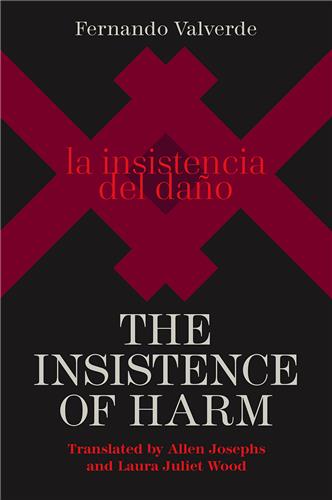An award-winning collection from an acclaimed contemporary poet
Browse by Subject: Latin American Studies
Please note that while you may order forthcoming books at any time, they will not be available for shipment until shortly before publication date
Encompassing works by Cubans on the island, in exile, and born in America, this volume delves into defining moments in Cuban art across three centuries, offering a kaleidoscopic view of the island’s people, culture, and history.
Detain and Punish: Haitian Refugees and the Rise of the World's Largest Immigration Detention System
Immigrants make up the largest proportion of federal prisoners in the United States, incarcerated in a vast network of more than two hundred detention facilities. This book investigates when detention became a centerpiece of U.S. immigration policy. Detain and Punish reveals why the practice was reinstituted in 1981 after being halted for several decades and how the system expanded to become the world’s largest immigration detention regime.
Set against the sweeping backdrop of one of the most dramatic refugee crises of the twentieth century, The Mariel Boatlift presents the stories of Cuban immigrants to the United States who overcame frightening circumstances to build new lives for themselves and flourish in their adopted country.
Beautifully illustrated with colorful photographs, this volume traces the living heritage of locally made pottery in the English-speaking Caribbean.
In this extensively researched book, Anna Clayfield challenges contemporary Western views on the militarization of Cuba. She argues that, while the pervasiveness of armed forces in revolutionary Cuba is hard to refute, it is the guerrilla legacy, ethos, and image—guerrillerismo—that has helped the Cuban revolutionary project survive. The veneration of the guerrilla fighter has been crucial to the political culture’s underdog mentality.
In Brazilian Propaganda, Nina Schneider examines the various modes of official, and unofficial, propaganda used by an authoritarian regime.
This book explores the many ways in which the island of Cuba has been immortalized in ceramic pieces. While the works of several Cuban ceramists are present in these pages, this is not a book about Cuban ceramics featuring Cuban artists working in that medium. The protagonist of this book is Cuba itself, seen through the eyes of ceramists—native and foreign.
In Exile and Revolution, Gerald Poyo provides a comprehensive account of how his great-great-grandfather spurred the working-class community of Key West to transform their roles as supporting cast to become critical actors in the struggle for Cuban independence.
This collection of essays offers a comprehensive overview of colonial legacies of racial and social inequality in Latin America and the Caribbean. Rich in theoretical framework and close textual analysis, these essays offer new paradigms and approaches to both reading and resolving the opposing forces of race, class, and the power of states.











